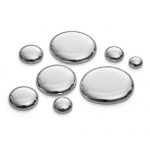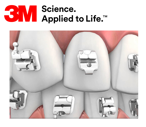By Barry Cockcroft – former Chief Dental Officer, England and a non-executive director at Mydentist
I recently had the good fortune to attend the annual conference of the European Chief Dental Officers in Cardiff. I was a member of this group for many years and was also on the executive committee for a few years. The current chair is the Scottish CDO and receiving the invitation to attend the one-day seminar, which precedes the business meeting, was a pleasant surprise.
As with all conferences the opportunity to catch up with former colleagues, some of whom I had not seen for quite a while, made it a special couple of days.
The most interesting talk, among many high quality presentations, came from David Williams, former dean of the Southampton Medical School and now he’s back in dental research at the University of London.
As CDO you become aware of the value of good data (and we have some of the world’s best in the UK) but the most interesting slide in David’s presentation showed very graphically how headline figures can mask really significant issues.
He showed a slide relating to the outcomes of the treatment of prostate cancer in two European countries and a specialist prostate clinic in Hamburg. The first table focussed on five-year survival rates after treatment and showed an almost uncanny similarity across the board. So, all is well with respect to prostate cancer treatment in the two countries without the specialist centre?… Well, no!
David showed a second slide that showed up what the researchers had found when they delved a little deeper into patient outcomes, beyond simple survival data. The two most common post-treatment complications following the treatment of prostate cancer are erectile dysfunction and urinary incontinence, issues of no little significance to the patients. This showed that the level of postoperative complications was much higher in the two European countries than in the specialist clinic. This seemed to me to typify a trend in developing services to focus on length of life without any regard to the quality of that life.
These two slides demonstrated how just focusing on headline figures can lead to inaccurate conclusions being drawn and possibly, even worse, service design being poorly informed.
In many ways this granularity of data is also an issue in the dental world in the UK. We have been systematically collecting high quality data on oral health for years and the overall pattern of improvement is there for all to see, but those data hide significant parts of the population that are not benefiting from such improvement. The latest Child Dental Health Survey, which demonstrated a continuing significant overall improvement, showed that disease levels were actually increasing in some poorer areas and particularly in those areas with high numbers of Eastern European and ethnic Chinese populations.
Given that resources are finite, and always will be, should we not focus our oral health improvement programmes on areas where these groups are situated, as opposed to wider schemes focussed on the geography of the NHS?
Attendance at a dental practice is one of the three evidence-based pillars of improving oral health. Data on dental care gathered from the quarterly GP patient survey shows that approximately 97 per cent of those who seek NHS dental care are successful and this is used to rebut claims that there needs to be more investment in some areas.
However, the data needs closer inspection. The overall 97 per cent figure sounds reassuring but if you remove those who have already been attending on a regular basis this figure falls to 77 per cent per cent. This means that nearly a quarter of people who are trying to access NHS dental care, having not done so previously, simply aren’t able to; this is a worrying figure and far removed from complacent reference to the headline figure.














